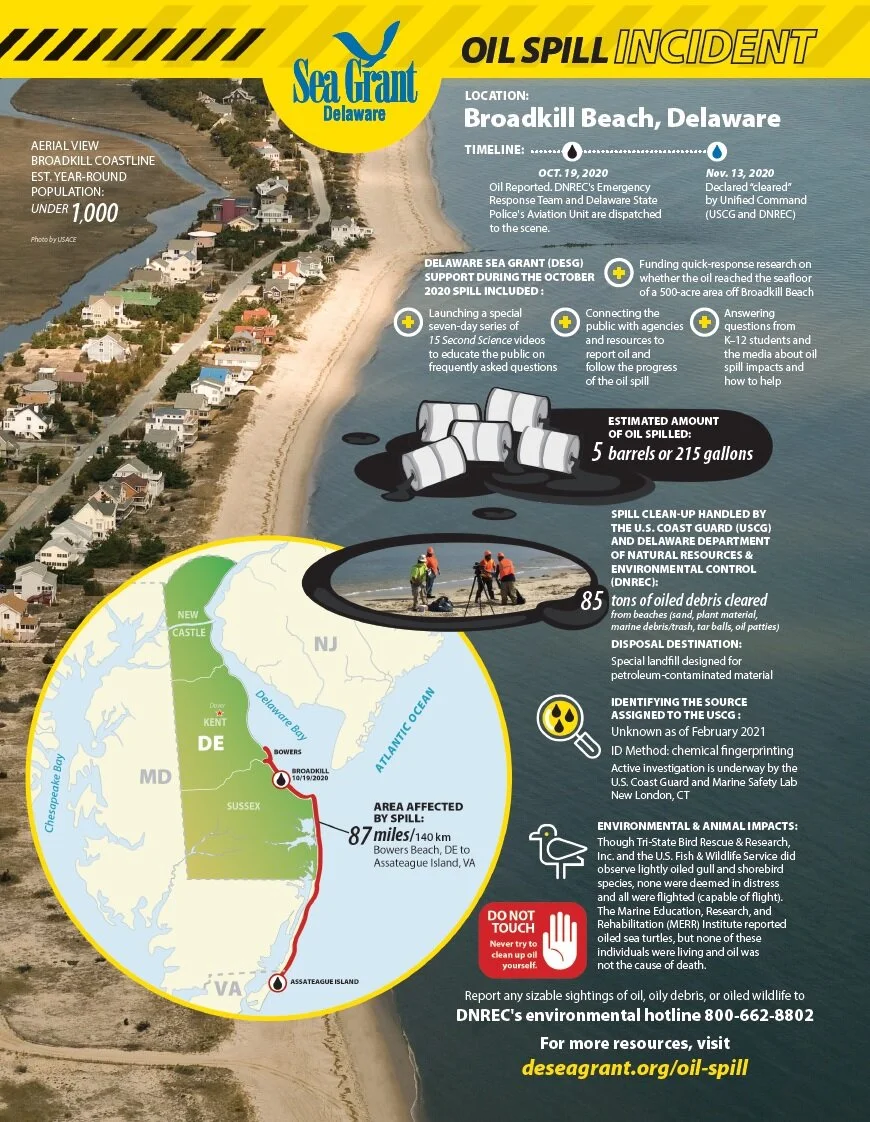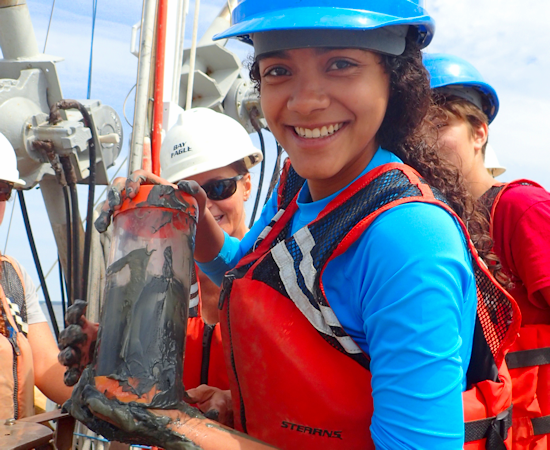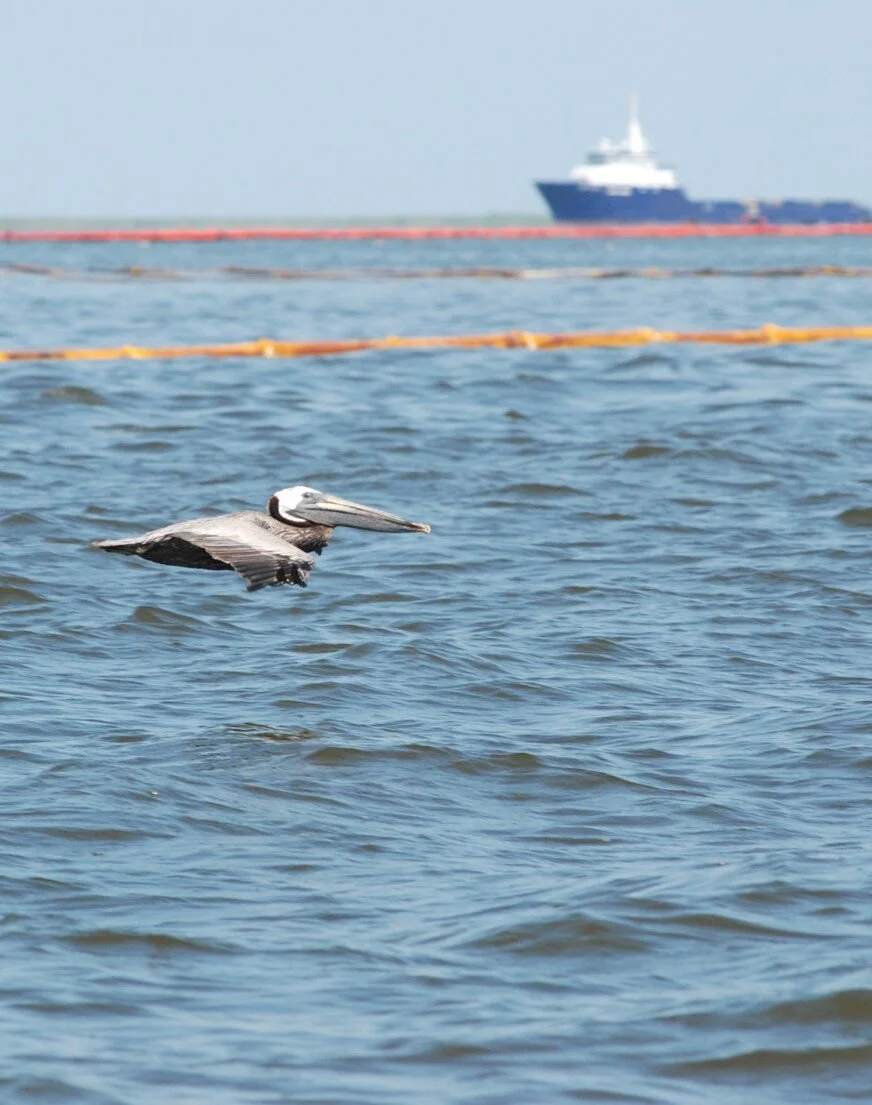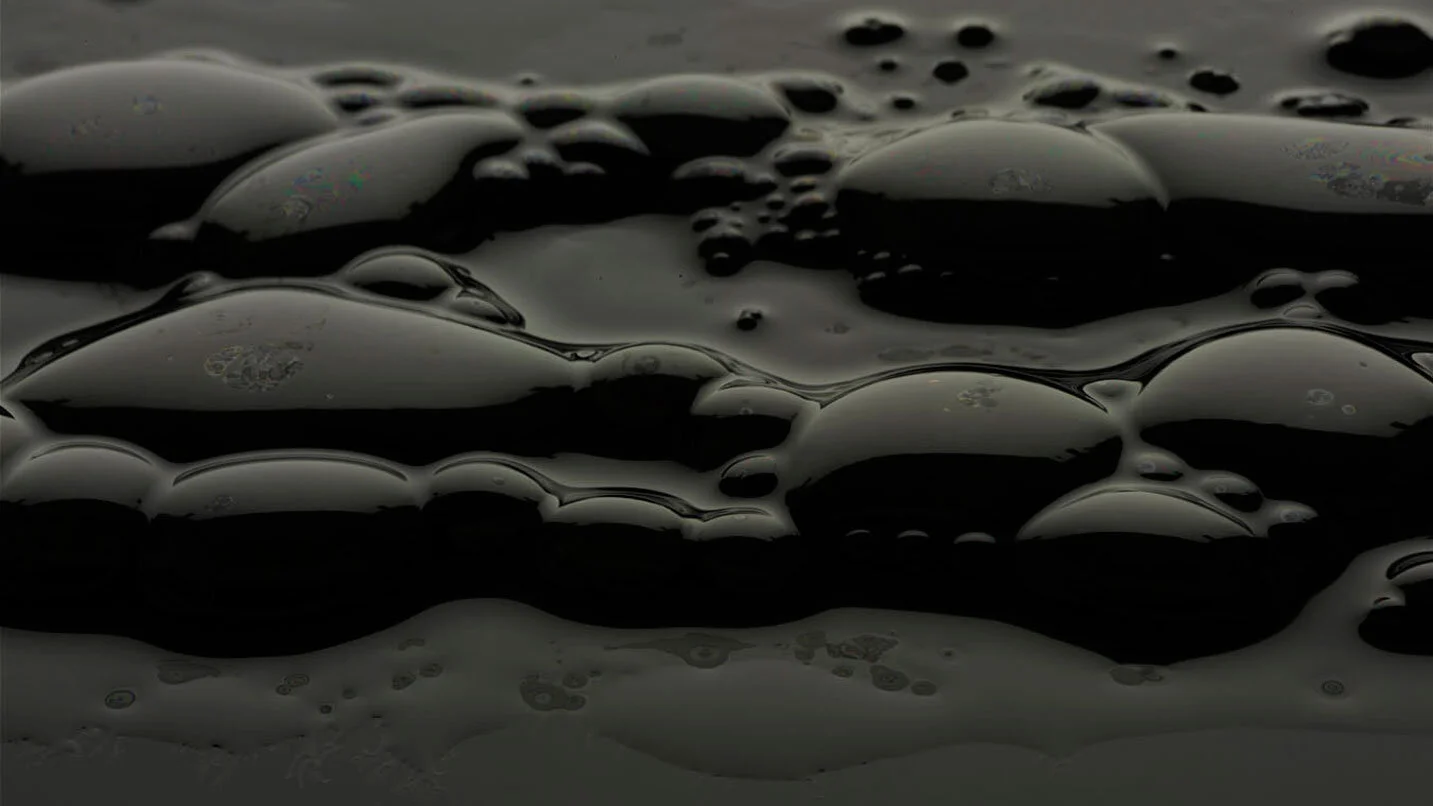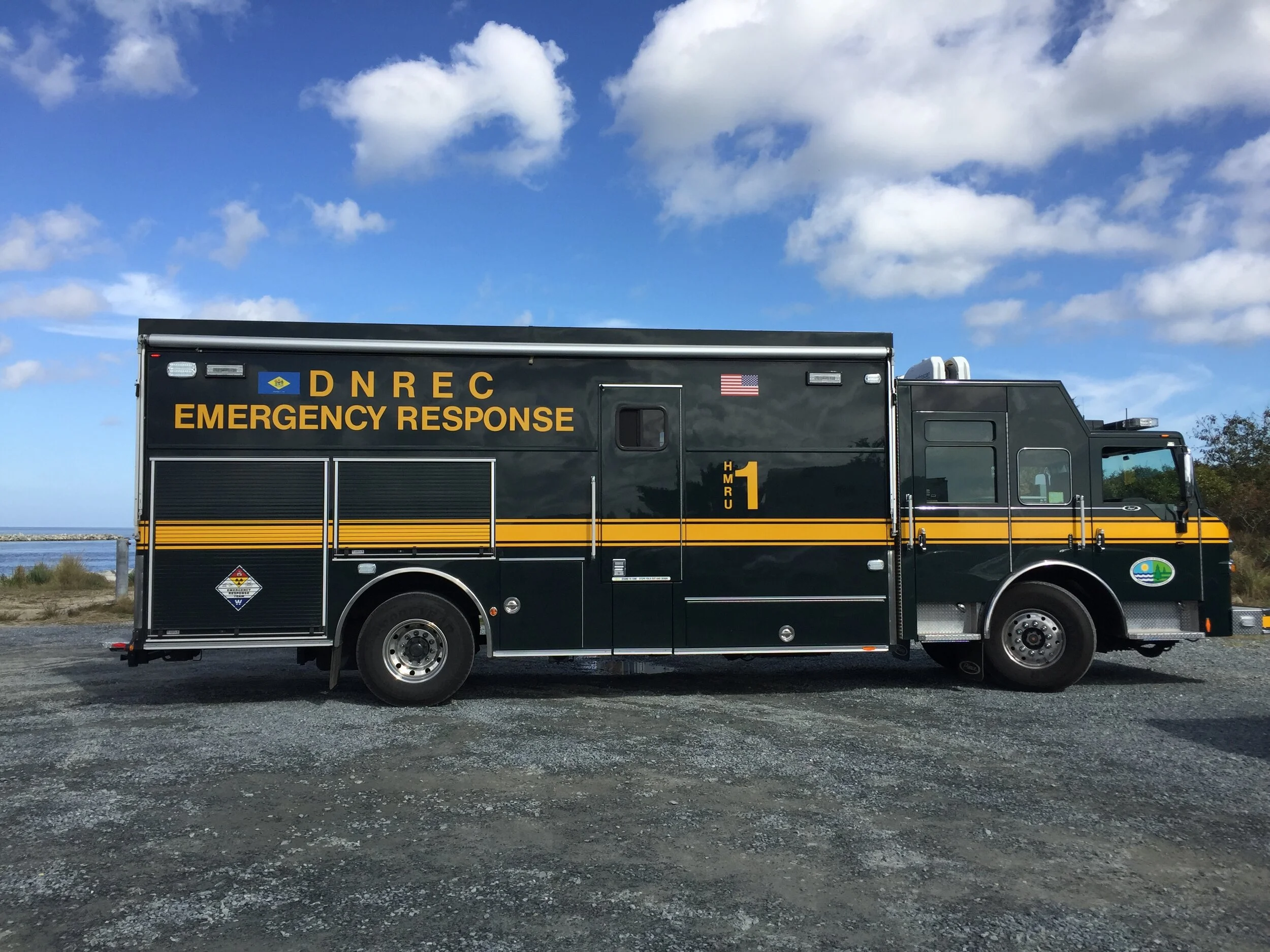
Despite Delaware’s and the mid-Atlantic’s efforts to shift energy generation to renewable sources, such as wind and solar, fossil fuels still make up the lionshare of Delaware’s energy resource, and is a major contributor to Delaware’s economy due to the transport of crude oil up the Delaware Bay and River, and refining along the river’s shores.
On average, approximately one million gallons of crude oil moves through Delaware Bay and River--every day--up to refineries and ports in New Castle County, Delaware, southeastern Pennsylvania, and southwestern New Jersey. This area is the second-largest oil port in the United States, handling 85% of the east coast petroleum imports.
Fortunately, most of this oil transport occurs without any issues. However, the threat of an oil spill is a reality in the Delaware Estuary.
With oil-recovery vessels stationed at the north and south ends of the estuary, the Delaware Bay and River Cooperative has staff at the ready 24/7/365. The DBRC crew can respond to oil spills in the bay and river, with the ability to skim 3,285 barrels, or 138,000 gallons, of oil from the water. For oil spills that make it onto Delaware’s beaches and marshes, the Delaware Department of Natural Resources and Environmental Control, alongside the U.S. Coast Guard, respond to quickly clean up oiled sands and debris. Tri-State Bird Rescue and Research, Inc. responds to any oiled animals that are discovered.
Delaware Sea Grant contributes to oil spill response along four independent but interrelated tracks:
Communication
In the immediate aftermath of a spill, DESG amplifies communications from DNREC and others about ways the public can help and information local residents need to know.
Research
DESG also has the unique ability to quickly fund small-scale research projects to examine important questions during an oil spill to help determine its source, its trajectory, and its ultimate impacts.
Education
Both during oil spills and on an ongoing basis, DESG educators provide context on the region’s oil industry and its environmental impacts through classroom outreach, teacher workshops and resources for interested members of the public.
Connection
DESG can help connect agencies and others with experts at the University of Delaware, whether for media comment or research collaboration, covering a wide range of topics, from fisheries impacts to the use of chemical dispersants and more.
Oil Spill FAQs
What can I do to help during an oil spill?
Regardless of a spill, we should all work to reduce our use of oil and oil-derived products, which are known to contribute to global climate change. During an oil spill, you can help first responders by reporting oil that you find on the ground or in the water. Never try to clean up oil yourself. You can also volunteer at an animal rescue facility that responds to oil spills, such as Tri-State Bird Rescue & Research or the Marine Education, Research and Rehabilitation (MERR) Institute.
How long does an oil spill last?
It depends on the amount and type of oil spilled, water currents, tides, and a host of other factors. Small spills can be cleaned up in just a few weeks, whereas large spills can take months or even years to fully clean up. In some cases, oil can still be found post-spill decades later.
What is the likelihood that an oil spill will occur in the Delaware Bay?
Despite millions of barrels of oil moving through the Delaware Bay and River each week, only a few oil spills have occurred. Check out our timeline above to learn more.
Do the tankers in the Delaware Bay have safety standards? What are they? And who enforces these rules/policies?
Yes! The Oil Pollution Act (OPA) of 1990 includes protocols for the prevention and removal of oil transported in the United States--on water and land--including ship safety standards. Ships must be inspected twice per year, to ensure they are safe to hold and transport oil. The OPA is enforced by the United States Environmental Protection Agency, the U.S. Coast Guard, and state and tribal agencies.
Who pays for damages or clean-up?
Until the source of the spill is identified and found guilty, cleanup is paid for by the federal government. The guilty party must reimburse the government for the cleanup, and also pays a substantial fine.
15 Second Science: Oil Spills
Check out our 15 Second Science oil spill playlist for answers to the following questions:
• If humans don’t intercept or clean-up oil after a spill, what happens to it?
• What do I do if I find oil on the beach or in the marsh?
• How do they find out who spilled the oil? What is oil “fingerprinting?”
• How does oil move in water? Can we predict where the oil will go?
• How are animals impacted by an oil spill?
• What happens to oil once it is cleaned up?
• Who would clean up oil spilled in the Delaware Bay/River?
Oil spill resources
Delaware Sea Grant Oil Spill Info Sheet
Looking for more information on oil spills in Delaware? Download our oil spill resources flyer, which provides a timeline of the 2020 oil spill at Broadkill Beach, DE, as well as details on DESG’s response strategies, and tips on how to report an oil spill.
For educators: Sea Grant BRIDGE
Search “oil” on the BRIDGE ocean science education portal for resources related to oil spills
Gulf Oil Spill Science Outreach Team
Sea Grant oil spill science specialists work together on multiple oil spill related research topics, offering info, seminars, and other resources on oil spills
Great Lakes Sea Grant Crude Oil Transport Team
This program provides stakeholders with resources on economic and environmental issues associated with the transportation of crude oil
Responding to Environmental Emergencies
DNREC’s Emergency Response Branch is responsible for responding to petroleum and hazardous materials incidents in the state.

